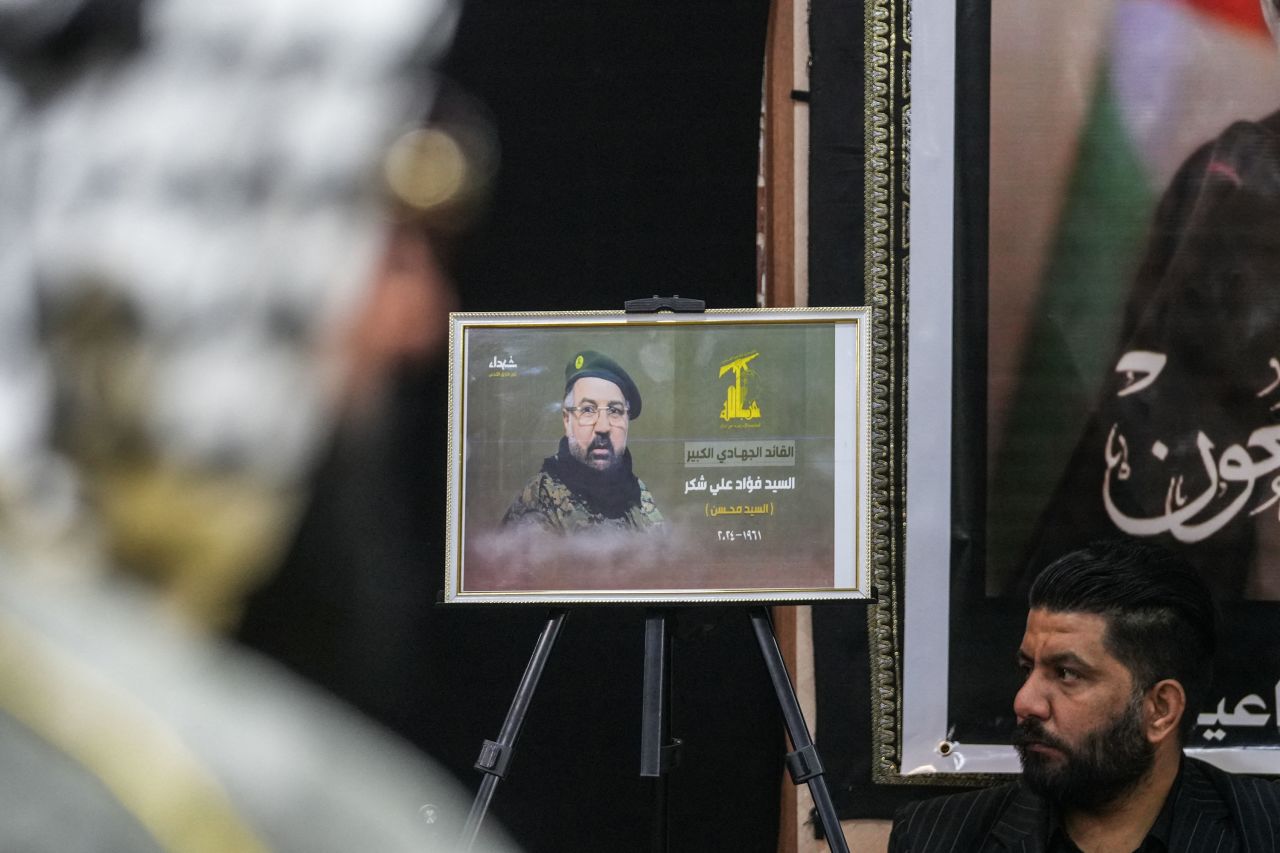Israeli media and politicians across the political spectrum have now entered a palpable phase of jubilance over the assassination of Hassan Nasrallah, the leader of Hezbollah. A debate over the implications of such a high-stakes killing should have been born from the actions instead of this frightening show of euphoria. This process presents a scenario wherein normally disparate channels of communication all converge on the one theme of promoting some form of violence that will have ramifications far beyond the short term in that region.
On Channel 12’s “Meet the Press, anchors Amit Segal and Ben Caspit raised glasses of arak to Nasrallah’s death while Channel 13’s Paz Robinson was passing chocolates in Karmiel. Not even left-wing Channel 13 managed to resist the fun. Meanwhile, the flagship show on Channel 14, The Patriots, transformed the killing into a sort of victory party and discussed it for over an hour with a proud hosting gesture – presenter Yinon Magal opening the song. The politicians, whether on the left or the right, merely repeated the media’s move as it cast the killing as a momentous triumph for Israel.
Its leader, Yair Golan, who until quite recently was considered one of the most leftist figures in Israeli politics, was euphoric over the assassination. He described it as “a huge and important achievement” and declared that “a new era has begun in the Middle East.” This kind of reaction, though clearly not representative of anything resembling a majority, seems indicative of an alarming trend toward a far more hawkish and triumphalist national attitude held together solely by a thirst for vengeance and the glorification of military power.
A Country United in Bloodlust
This new cohesion comes at a time when Israel is fighting on several fronts. What was once a highly divided political realm, particularly over the return of hostages from Gaza, has now become united around the idea that assassinating Hezbollah’s leader puts an end to the war. Opposition leader Yair Lapid said as much, stating, “Whoever attacks Israel will die,” a positioning statement that encapsulates the zero-sum mentality under which Israeli policy is being directed.
The euphoria did not just lie in words. A propaganda video of fighter jets taking off from Hatzerim air base was also released, complete with footage of an airstrike that was purportedly meant to take out Nasrallah. In one radio communication between air force commanders and pilots, Major General Tomer Bar can be heard praising the strike: “You’ve given a presentation of victory here, I think. Good job.” Such explicit flattery of violence marks a very disturbing time in Israeli society, where differences between military triumph and bloodlust become increasingly blurred.
No End in Sight
While Israel may be celebrating, history would advise that assassinations do not usher in a lasting peace. And already, according to the Haaretz newspaper, there exist Israeli military plans for a new invasion of southern Lebanon that will take advantage of the opportunity to crush Hezbollah before Iran can restock its missile supplies. The officials in Israel want an escalation of the affair, thinking that Hezbollah represents a golden chance because the vacuum in its leadership has thrown open the window for final decisive blows against this political force as if being soft targets in itself will be justification for victimhood.
But such a sentiment of victory is tragically short-sighted. Hezbollah is not an organization that disintegrates at the moment when the body of any of its leaders hits the ground, however prominent. The long decades of struggle in the region tellingly reveal the truth: the militant organizations grow stronger after the death of the leaders and are replaced by new figures, nearly always more radical. Nasrallah’s death will bury neither Hezbollah nor Iraq but is likely to make Hezbollah much more militant.
The Consequences of Celebrating Death
These celebrations in Israel show a nation perilously drunk on the military might thrust upon it. It all seems so unaware of the aftereffects. They may have killed Nasrallah as a satisfaction to their immediate thirst for revenge, but they have set themselves up for more violence. Hezbollah will retaliate, and the cycle of bloodshed will continue. But Israeli actions are driving the country deeper into nowhere and further away from any alternative hope for peace. The effervescent celebrations over Nasrallah’s killing remind one that Israel’s political leadership and media are more obsessed with short-term victories than with long-term security for citizens.
In the final analysis, this most recent killing has not brought Israel any closer to peace. Instead, it has anchored the divide between Israel and its neighbors further, thus ensuring that its heirs shall inherit not only a more bloodied war but one of even graver portents. For Israel, a victory whose rap may bellow of triumphal orchestration and gusto and finest ritual at a much greater price than they will ever admit to.















